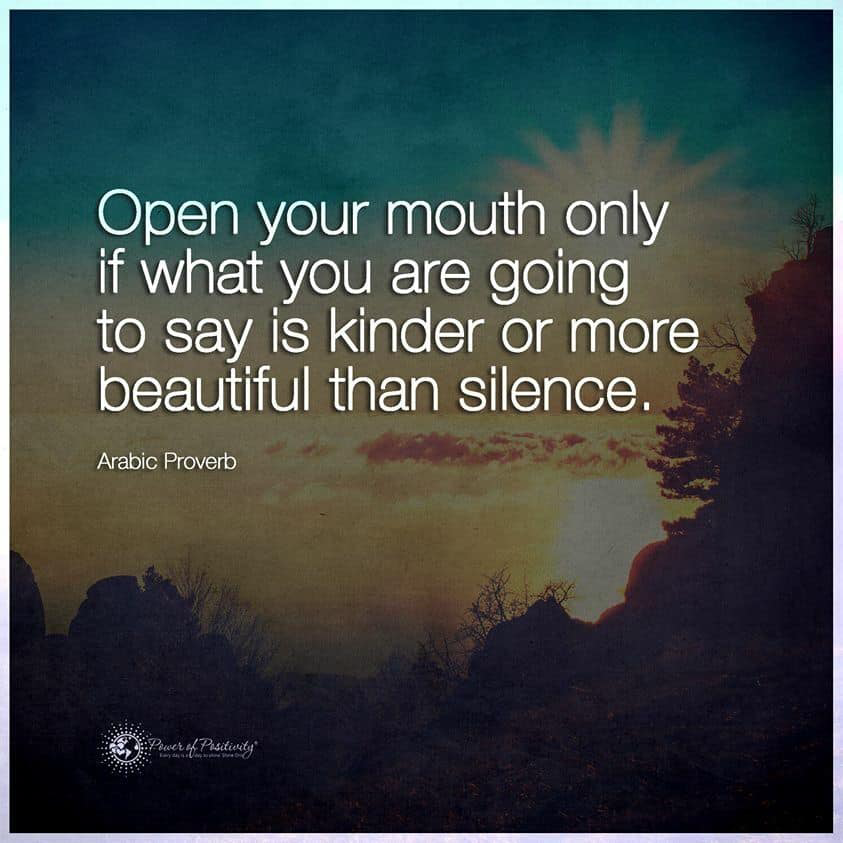Good communication is an essential skill in personal and professional life. It involves the ability to convey ideas, thoughts, and feelings effectively and to listen actively to understand the perspectives of others. Good communicators have several key characteristics that set them apart from others. One of the most significant differences between good and poor communicators is their approach to the communication process.
Good communicators take an active role in the exchange, seeking to understand the perspectives and needs of others. But they also make sure to express their thoughts and feelings clearly. They use clear and concise language, avoiding ambiguity and misunderstanding. Good communicators also understand the importance of empathy.
They try to see the world from the other person’s point of view and respond respectfully. These habits and behaviors contribute to effective, efficient, and positive communication. They make it possible to build strong relationships and achieve mutual understanding.
8 Fundamentals of Good Communication

1. They Are Active Listeners
Good communicators are active listeners. They pay close attention to what others say and actively seek to understand their perspectives and needs. Active listening requires more than just hearing the words someone is speaking. It involves giving them your full attention and engaging in the conversation meaningfully. This type of listening helps to build trust, foster understanding, and facilitate the resolution of conflicts.
Active listeners demonstrate their attention by making eye contact, nodding, and asking questions to clarify their understanding. They avoid distractions, such as checking their phone or interrupting, that might prevent them from fully engaging in the conversation. Good communicators also listen to the content and the emotions behind the words. This helps to deepen their understanding of the situation and respond appropriately and respectfully.
By contrast, passive listeners tend to half-listen, not entirely engage in the conversation or provide their full attention. This can lead to misunderstandings and ineffective communication, eroding trust and harming relationships.
2. They Use Clear and Concise Language
Another sign of a good communicator is that they use clear and concise language. They avoid ambiguity and use specific language to ensure their message is correctly understood. This is important in preventing misunderstandings and ensuring that communication is efficient and effective.
They avoid using technical jargon or overly complex language that might confuse their audience or make their message less accessible. Maybe they have advanced knowledge in a particular area but won’t use it in day-to-day conversation, as they know it isn’t helpful for anyone.
On the other hand, poor communicators may use vague or confusing language, making it difficult for their audience to understand their message. This is because they don’t make an effort to make themselves understood. And this usually happens because they feel it’s not their duty to get their point across. This can lead to misunderstandings, misinterpretations, and ineffective communication.
3. They Know How to Read Non-Verbal Cues
Being a good communicator also means being aware of non-verbal cues, such as body language and tone of voice. It means you know how to use them to enhance your message and understand the perspectives of others. These cues can provide important information about the context and meaning of a message. They can even help to build rapport and foster positive communication.
Good communicators can read their non-verbal cues and those of others. They use this information to adjust their communication style as needed. For example, they might adjust their tone of voice to match the mood or energy of the conversation. Or they might use gestures to emphasize a point or show empathy.
Non-verbal cues can also provide insight into a person’s emotions and perspectives. So, they allow good communicators to respond in the best possible way. For example, if someone seems tense or nervous, a good communicator might use a calming tone of voice. Or maybe even take a break from the conversation to allow them to regroup. By contrast, poor communicators may ignore non-verbal cues or misinterpret them. So this leads to misunderstandings and ineffective communication.
4. Positive Communication Builds More Empathy
Good communicators can show empathy, meaning they put themselves in others’ shoes to understand their perspectives and feelings. This helps to build trust, foster understanding, and facilitate positive communication. They can understand the emotions behind the words and respond in a way that puts others at ease. Good communicators react to others in a kind and respectful manner, even in challenging situations.
They use a calm and empathetic tone of voice and choose their words carefully to avoid causing further distress. They can see situations from the other person’s point of view and demonstrate empathy through their words and actions. Besides that, they even demonstrate understanding by summarizing the other person’s words and asking clarifying questions. This helps to ensure they correctly understand the other person’s perspective and emotions.
Poor communicators may lack empathy, responding to situations and conflicts in a way that is insensitive or dismissive. This can erode trust, harm relationships, and lead to ineffective communication. Talking to someone who shows no empathy can be a frustrating, even hurtful experience

5. They Adapt to the Audience
A person who communicates well will be able to adapt their communication style to the audience they are speaking to. They understand that different audiences may have different needs, perspectives, and communication styles and adjust their approach accordingly. For example, good communicators might use more technical language when speaking to experts in a particular field.
But they will simplify their language when speaking to a general audience. They can explain complex concepts in simple terms and provide additional information when needed. They might also adjust the tone and style of their communication to fit the cultural context. For example, they will use humor in more relaxed settings but be more formal in more severe situations.
By adapting to the audience, good communicators can engage their listeners and deliver their message effectively and persuasively. And they manage to connect with people in a way that poor communicators never could.
6. They Know How to Manage Conflict
Good communicators are skilled in managing conflict. They can effectively navigate tense or difficult situations and find mutually beneficial solutions. One key strategy good communicators use to manage conflict is active listening. They listen to both sides of the argument and try to understand the other person’s perspective. This helps to identify the root cause of the conflict and address it constructively and respectfully.
Another strategy used by good communicators is to remain calm and objective, even in emotionally charged situations. They avoid engaging in personal attacks or becoming defensive, which can escalate the conflict. Instead, they focus on finding a solution that benefits both parties. They can find mutually beneficial solutions to conflicts. They are open to compromise and willing to negotiate, and they consider the best interests of both parties when seeking a resolution.
7. They Provide Feedback
Someone who knows how to communicate will understand the importance of providing positive and negative feedback. They are skilled in delivering it clearly, constructively, and respectfully. Positive feedback can boost confidence, motivate individuals to continue working hard, and help to build positive relationships.
Good communicators can provide specific and meaningful compliments that acknowledge the efforts and achievements of others. When delivered correctly, negative feedback can help individuals identify areas for improvement and grow in their personal and professional development. Good communicators can offer specific and actionable feedback that enables individuals to understand what they need to do to improve.
Good communicators also understand the importance of timing when providing feedback. They avoid providing negative feedback in the heat of the moment and instead choose a time when both parties are calm and can have a productive conversation. Their feedback is always concise and easy to understand. And you never feel like they are judging you when they are offering you a bit of feedback. They avoid being critical or dismissive and instead focus on providing support and guidance to help individuals to improve.
8. Good Communication Builds Trust
People who know how to communicate understand the importance of building trust in their relationships and interactions. So, they employ various strategies to do so. One of the key strategies used by good communicators to build trust is being transparent and honest. They are open and straightforward in communication and avoid hiding or distorting information.
They also admit when they make mistakes and take responsibility for their actions. Another strategy used by good communicators is to listen and show empathy actively. By putting themselves in others’ shoes and understanding their perspectives and feelings, they build a strong connection and establish trust.
Good communicators also consistently follow through on their promises and commitments. They do what they say they will do, and they are reliable. This helps to build trust by demonstrating their dependability and credibility. They can demonstrate respect and value for others. They treat everyone with dignity and respect, regardless of their position or background. This shows that they value others’ opinions and perspectives.
Final Thoughts on the Hallmarks of Good Communication
The people considered good communicators employ many practical strategies to facilitate positive communication. These strategies include active listening, using clear and concise language, demonstrating empathy, adapting to their audience, managing conflict, providing feedback, and building trust.
By adopting these skills, they can effectively communicate their thoughts, feelings, and ideas and foster positive relationships. Communicating effectively is a critical and valuable skill in personal or professional settings. Good communicators are lifelong learners who continually strive to improve their communication skills. They are open to receiving feedback and are willing to make changes to better connect with others.
They understand that effective communication is not a one-time achievement but rather an ongoing process of growth and development. Good communicators can stay ahead of the curve by continually refining their skills and adapting to new situations. No matter the setting, good communicators can effectively navigate any situation with confidence and grace. In a world where communication is essential, being a good communicator can open doors, create opportunities, and lead a more fulfilling life.



















